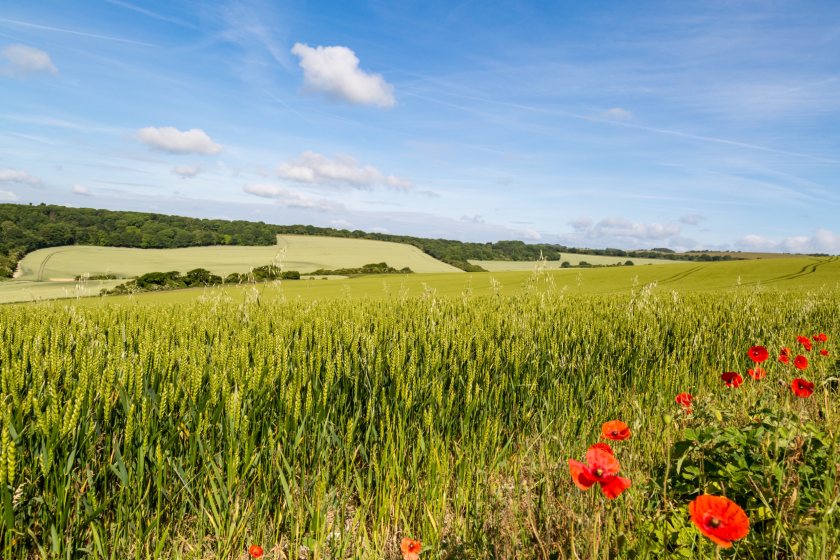Most farmers to adopt nature friendly practices 'on 15% of land by 2030'

Defra has announced a five-year delivery plan to improve the the environment, which includes incentivising most farmers to adopt nature-friendly practices on at least 10 to 15% of their land by 2030.
The government has today published its Environmental Improvement Plan 2023, which includes actions to "halt and then reverse the decline in nature".
The England-only plan, which is required under the Environment Act, will be officially unveiled by Defra Secretary Thérèse Coffey during a keynote speech on Tuesday morning (31 January).
For the farming industry, the plan requires 65 to 80% of farmers to adopt nature friendly farming practices on at least 10-15% of their land by 2030.
They will also be supported to create or restore 30,000 miles of hedgerows a year by 2037 and 45,000 miles of hedgerows a year by 2050.
Ammonia emissions will be reduced through incentives in the UK's post-Brexit farming schemes, Defra says, while expanding environmental permitting condition to dairy and intensive beef farms.
Government will also create and restore at least 500,000 hectares of new wildlife habitats, starting with 70 new projects including 25 new or expanded National Nature Reserves and 19 further Nature Recovery Projects.
Speaking before her speech, Ms Coffey said the improvement plan sets out how the government sought to improve the environment in the UK and around the world.
"Nature is vital for our survival, crucial to our food security, clean air, and clean water as well as health and well-being benefits," she said.
"We are transforming financial support for farmers and landowners to prioritise improving the environment, we are stepping up on tree planting, we have cleaner air, we have put a spotlight on water quality."
Natural England chair Tony Juniper called the Environmental Improvement Plan "broad, most welcome and important".
"We are facing into a series of environmental challenges that are very serious, pressing and which are connected to one another.
"If we are to take effective action then we will need an ambitious and integrated plan that is geared up to meeting some very challenging targets."
What are the other commitments in the plan?
Other new environmental commitments set out today include:
• A multi-million pound 'species survival fund' to protect the UK's rarest species – from hedgehogs to red squirrels.
• 10 actions on water efficiency in new developments and retrofits, including reviewing building regulations and other legislation
• Restoring 400 miles of river through the first round of Landscape Recovery projects and establishing 3,000 hectares of new woodlands along England’s rivers
• Challenging councils to improve air quality more quickly by assessing their performance and use of existing powers
• Improving the way air quality information is communicated with the public.
• Making it easier for people to minimise their waste, including a new set of interim targets for 2028 to reduce different types of waste








